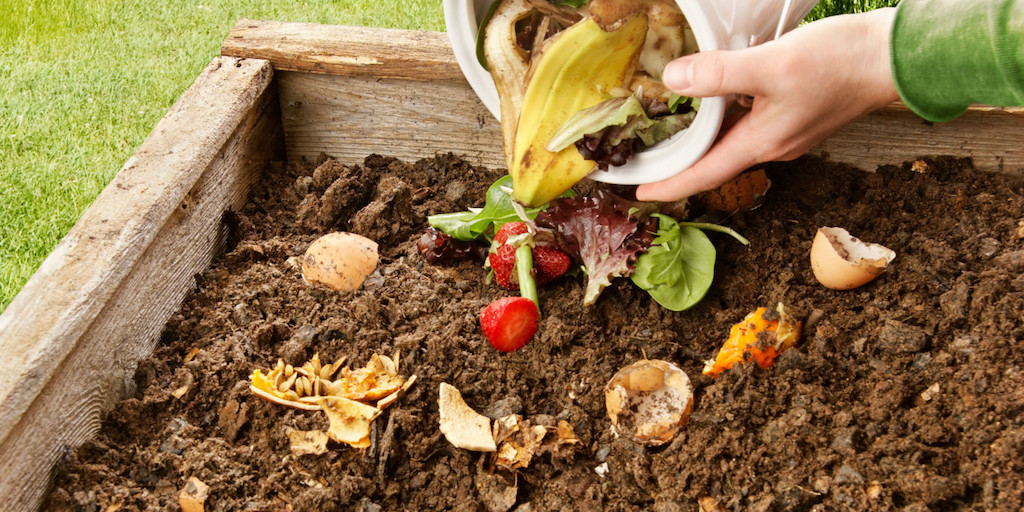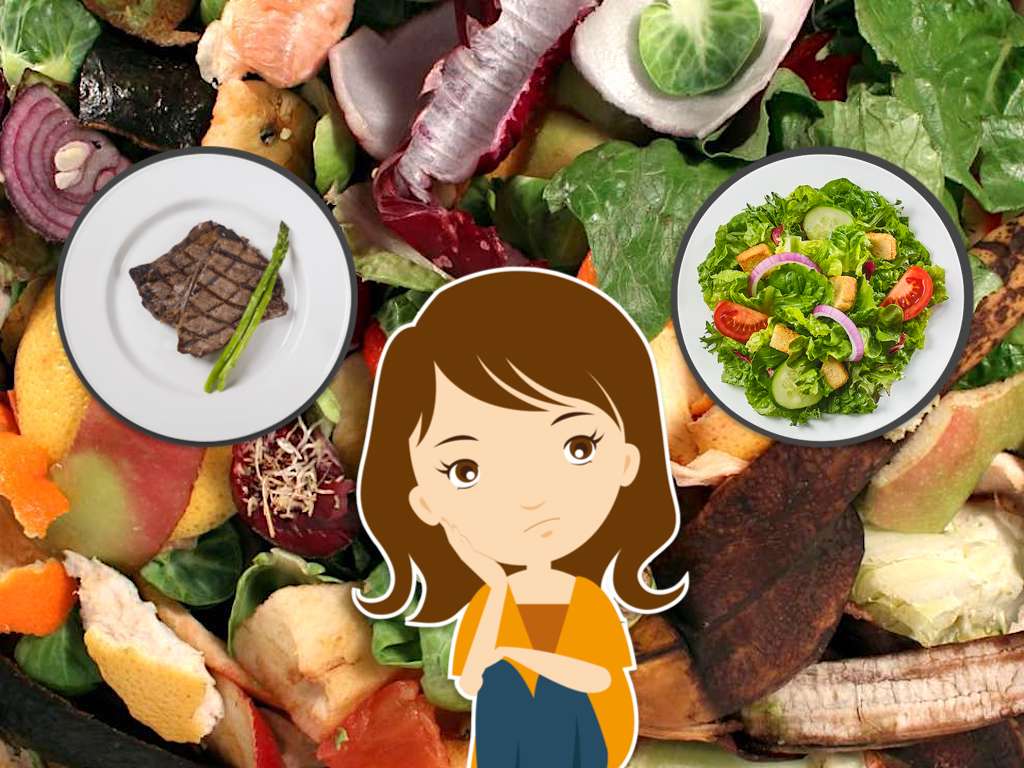5 Mins Read
In the Green Queen Food Footprint Series, we tackle some of the complexities surrounding food and examine which choices are really the most planet-friendly. Today, we explore different dietary choices and find out which one is associated with the most food waste.
The climate crisis is rising to the top of the global agenda, waking more people up to the connection between our consumption choices and the carbon footprint it leaves behind. While some questions about the footprint of food can appear to be relatively straightforward, the reality may not always be as simple as it seems.
The world is suffering from a major food waste crisis, with around a third of all food produced globally ending up as waste in landfills or sent to incinerators. Not only does the process of food production itself require a lot of resources, when food is left to rot or is burned as trash, but methane is also produced – a greenhouse gas that is even more toxic than carbon dioxide. Asia, in particular, produces 50% of the world’s food waste, much of it driven by industrialised areas and is set to increase as the continent gets richer.
According to the United Nations, if the world stopped wasting food, we could reduce carbon emissions by as much as 11%. Choosing a diet that leaves behind less food waste is, therefore, an important part of reducing your overall food footprint.

In 2018, a study jointly conducted by the University of Vermont, University of New Hampshire and the USDA examined how our dietary choices could correlate with the amount of food waste. Relying on government data on the 150,000 tonnes of food thrown out by Americans daily, the study found some interesting conclusions that led some to believe that “healthier” diets were associated with larger amounts of food wastage.
The researchers demonstrated a linear relationship between higher diet quality (healthier diets) and greater food waste. Individuals consuming the lowest diet quality, predominantly made up of animal products and over-processed junk food, wasted an average of 295 grams of food per day, while those consuming the highest quality diet made up of fruit and vegetables wasted 535 grams of food.
However, while some quickly inferred that this meant that a healthy whole foods plant-based diet would lead to more food waste, the study’s researchers made clear that the association was unclear because the majority of agricultural cropland is used to cultivate feed for animals. In other words, eating meat directly takes up a significant portion of all land that grows plant crops.
This was further clarified in a study published earlier this year by researchers from the Department of Health Sciences at William & Mary University in Virginia, United States. In the paper, scientists said that while low-quality diets may produce less waste in terms of end government data, these diets – typically loaded with more animal and animal-derived products – cause higher rates of cropland waste due to the nature of animal agriculture and feed cultivation.
Read: 5 ways to reduce food waste at home according to the Feeding Hong Kong founder

Another added complexity is the compostability of food waste. While plant produce discards from fruit and vegetables can be composted, most countries do not allow meat and dairy waste to be composted in municipal systems. While they can technically be composted, it is considered difficult to compost meat and dairy, especially in large facilities, because it attracts pests and bacteria, and causes odour problems, so most of the time, it is required for meat and dairy to be thrown out to landfills or burned in incinerators.
Given that dairy and meat accounts for 17% and 14% of total food waste respectively, which adds up to 31% of discarded food, thrown away animal food products do contribute a colossal amount of carbon emissions and resource wastage in both the afterlife and production process.
We reached to one of the region’s foremost food waste experts, Dr Daisy Tam, Assistant Professor at Hong Kong Baptist University and founder of food waste crowdsourced app Breadline and asked her what dietary choices produce the least food waste. Here’s what Tam told us:
“Generally I have two rules-of-thumb for food choices:
1) Eat down the food chain: any food that requires fewer resources to produce is less wasteful, so everything we can eat and cook whole (that also means less processed food). A plant-based diet is an easy first step. But if you eat fish, then go for smaller fish – sardines and anchovies, for example.
2) Choose foods that have a shorter supply chain: if you can grow your own, that’s the best! But if not, source locally – the shorter the supply chain, the more agile the system will be to handle the excess.
What does this mean in terms of action? We know that the most carbon-friendly and sustainable dietary choice in the world is a plant-based diet. The less animal products, the better. But if we also want to clamp down on food waste, it is vital that we buy, prepare and store the right amount of fresh fruit and vegetables that we are able to consume, and to not be afraid of “ugly” produce that is perfectly edible.
Check out the other parts of our Food Footprint Series:
‣ Is choosing local always the most eco-friendly option?
‣ Should you quit almond milk?
‣ Is eating seafood more carbon-friendly than meat?
Lead image courtesy of Shutterstock / Clipart / PNG Fuel, compiled by Green Queen Media.




